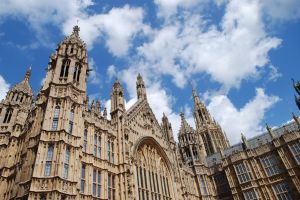

The government ordered public bodies to purge their computer systems of proprietary software standards, those data formats and interfaces over which dominant software companies had made property claims established under US patent law.
It decreed that public bodies must instead implement non-proprietary, open standards; under rules it had codified so tightly that it left little room for doubt that it had at last found the courage of its convictions.
Well, almost. The policy didn't apply to "commercial, off-the-shelf software", those ubiquitous, proprietary software packages against which government had formulated its open standards policy in the first place. It was written in reference only to bespoke systems. But let's not spoil the party by picking hairs, for a moment at least.
Disregarding COTS, the policy was far cry from the prevarication that has characterised UK technology policy since 2010, when the coalition was elected. The government committed its open standards pledge to paper in 2011. The proprietary software industry immediately protested at what would amount to the confiscation of its means to assert monopoly power. The protest was led by COTS suppliers Microsoft and Oracle. The government's resolve was so weak it recanted.
europa.eu calls it a boost for open source nonetheless:
United Kingdom open standards policy a boost for open source
One of the aims of the United Kingdom's Open Standard Principles, published today, is to boost the use of free and open source software solutions by the country's public administrations. The new policy describes principles for the selection and specification of open standards which can be implemented in both open source and proprietary software.
Finally: UK Open Standards are RF, not FRAND
In a huge win for open standards, open source and the public, the long-awaited UK government definition of open standards has come down firmly on the side of RF, not FRAND. The UK government's approach is enshrined in an important new document defining what it calls Open Standards Principles.
[...]
Transparency is crucial for another reason. As readers may recall from the many Open Enterprise blog posts over the last year describing the extremely long process that has led to the framing of this new policy, companies like Microsoft have fought very hard to prevent RF being enshrined in the new rules. They and their proxies will be looking for any opportunity to challenge the new rules - not least in the courts.
However, I think opponents of the Open Standards Principles will need to think carefully before taking that course. The Cabinet Office has been scrupulous in giving them a chance to make their case, along with everyone else. The original definition of open standards was withdrawn as a result of pressure being applied, and not one, but two consultations have been carried about to solicit views in this area. Indeed, the UK government has made what are probably unprecedented efforts to hear all sides of the argument.
That's evident in the home page listing the Open Standards Consultation documents. There you will find not only Principles themselves, but a host of ancillary information. These include the Government's Response, which explains the process that led to them, including consolidated statistics, a more detailed analysis of every question, and an independent review of the evidence by the Centre for Intellectual Property Policy & Management (CIPPM) at Bournemouth University, which is essentially the report that I wrote about back in September.
This extraordinary level of detail in terms of the consultations and their analysis is a clear sign that the Cabinet Office means business here, and that it is prepared to defend its work in the courts if necessary. The time and money that it has invested in this project over the last few years is also a token of its seriousness and desire to make open standards a reality in this country, and to establish a level playing field for government computing.
Assuming that happens - and based on the new Principles, the signs it will are good - that would represent the start of a new era for IT procurement in the UK. The Cabinet Office team deserves kudos for at least giving us that possibility.